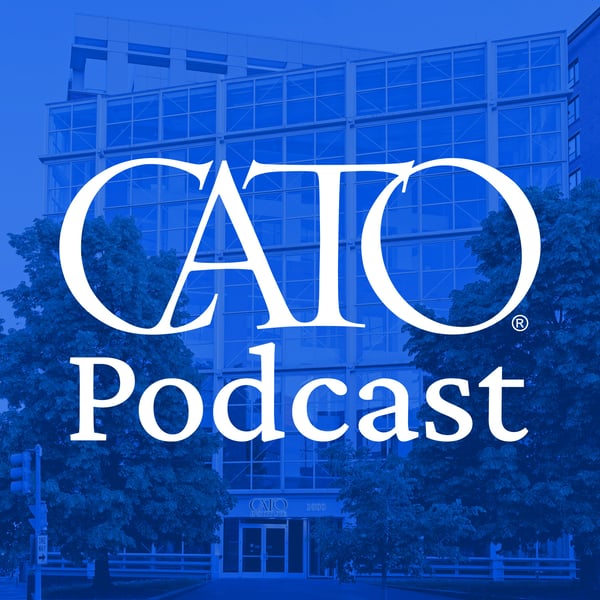Best of Cato Daily Podcast: A Would-Be Home Distiller Fights Back in Ream v. U.S. Department of Treasury
Cato Podcast
Cato Institute
4.6 • 949 Ratings
🗓️ 20 June 2025
⏱️ 17 minutes
🧾️ Download transcript
Summary
Caleb O. Brown hosted the Cato Daily Podcast for nearly 18 years, producing well over 4000 episodes. He has gone on to head Kentucky’s Bluegrass Institute. This is one among the best episodes produced in his tenure, selected by the host and listeners.
An engineer and brewer thought he would take up home distilling as a hobby, but he then learned it’s a federal crime. In Ream v. U.S. Department of Treasury, he’s fighting back. The Buckeye Institute’s Robert Alt explains.
Hosted on Acast. See acast.com/privacy for more information.
Transcript
Click on a timestamp to play from that location
| 0:00.0 | This is longtime Cater Daily podcast host, Caleb Brown. After thousands of episodes over nearly 18 years, I've moved on from the Cater Daily podcast, but in the interim, I, along with some of you, have selected some favorites. I hope they resonate with our current moment and continue to spark the desire to defend liberty. Thank you for listening. |
| 0:22.1 | This is the Cater Daily podcast for Monday, March 25th, 2024. I'm Caleb Brown. When Ohio |
| 0:28.2 | entrepreneur John Ream wanted to engage in a new hobby, that of home distilling, he realized |
| 0:33.8 | he'd be committing a federal felony. So he's suing the Treasury Department for the right to engage in this would-be hobby, and he's in part challenging a bizarre but long-standing interpretation of the U.S. Commerce Clause. |
| 0:46.8 | If Mr. Ream wins the right to engage in his hobby, it could mean big things for federal regulation. |
| 0:53.4 | Mr. Ream's attorney is Robert Alt. |
| 0:55.6 | He explains why this case has big implications. |
| 0:58.1 | I have had the pleasure. |
| 1:00.5 | Well, maybe not the pleasure. |
| 1:01.9 | The bemusement of explaining the Supreme Court's reasoning in the Wicked v. |
| 1:08.6 | Philburn decision, including to law students, and being met with |
| 1:16.3 | utter disbelief that that was the reasoning offered by the Supreme Court in that case that has |
| 1:23.2 | enabled so much mischief at the federal level. If you don't mind, can you characterize |
| 1:30.3 | or at least give us a brief summary of what that reasoning was? My pleasure to do so. |
| 1:37.0 | And I feel like as someone who runs the Buckeye Institute, it's particularly appropriate that I |
| 1:42.3 | should do so because Wicked versus Philburn, |
| 1:46.1 | regrettably, I think one of the worst decisions in the history of the United Supreme Court |
| 1:50.4 | arises from Ohio and involves an Ohio farmer, Roscoe Philburn, who had a farm just outside |
| 1:58.5 | of Dayton, Ohio. And during the Great Depression, he grew a number |
| 2:03.7 | of crops, including winter wheat, as part of the Agricultural Adjustment Act, the federal government |
| 2:10.0 | in an attempt to essentially cartelize farming and to regulate farm prices, put caps on the amount of crops farmers could grow. |
| 2:23.0 | Farmer Philburn exceeded his quota, but an interesting tidbit is that the excess wheat, |
... |
Please login to see the full transcript.
Disclaimer: The podcast and artwork embedded on this page are from Cato Institute, and are the property of its owner and not affiliated with or endorsed by Tapesearch.
Generated transcripts are the property of Cato Institute and are distributed freely under the Fair Use doctrine. Transcripts generated by Tapesearch are not guaranteed to be accurate.
Copyright © Tapesearch 2025.

